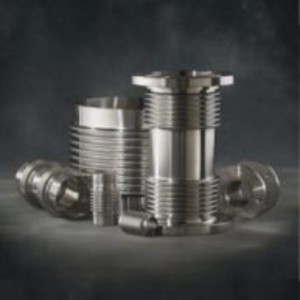 Hose Master’s advice on when to use flexible metal hoses and joints
Hose Master’s advice on when to use flexible metal hoses and joints
August 11, 2020 REDWIRE is news you can use from leading suppliers. Powered by FRASERS.
Posted by Sudbury International Engineered Products Limited
Expansion Joints, (fabric, metal, rubber, dog-bone), Automatic Recirculation Valves For Pumps, Specialty Sootblowers, Se... Read more
Subscribe
Free REDWIRE e-newsletter

Sudbury International carries flexible metal hoses and expansion joints by Hose Master.
Flexible metal products make up a major part of the inventory at Sudbury International Engineered Products Limited, from hoses to expansion joints. But it is not easy to know when to use them. The market offers these products in different materials, such as metal, rubber, composite, PTFE, and fabric.
Hose Master, which manufactures many of these products available from Sudbury International, offers some valuable advice for customers to help them decide this issue.
Eight factors to consider
According to Hose Master, the right kind of hose or expansion joint depends on the application. Before you choose flexible metal products from Sudbury International, consider these eight factors:
- Temperature extremes. Metal is the only material that can withstand certain very hot or cold temperatures, like that of the media going through a hose or of the surrounding atmosphere.
- Chemical compatibility. Flexible metal hosing can withstand more kinds of chemicals than most other hose types can. Choose metal hoses if they will be exposed to aggressive chemicals, either internally or externally.
- Permeation concerns. While non-metallic hosing is vulnerable to gas permeation through the hose wall and into the atmosphere, metal hoses do not allow permeation. So metal hose may be necessary if containing gas inside the hose is essential.
- Potential for catastrophic failure. Small holes or cracks typically develop in metal hoses that fail, while other hose types usually develop large cracks or completely come apart. Metal hosing may help to minimize the catastrophic effects of sudden hose failure, as it leaks contents at a slower rate.
- Abrasion and over-bending issues. Workers can use metal hoses as protective covers over wires, or over other hosing, to prevent abrasion and excessive bending.
- Fire safety. Metal hose maintains its integrity in temperatures up to 700 degrees Celsius, while fire melts hoses made of other materials.
- Achieving full vacuum. Other hose types collapse under full vacuum, but metal hosing maintains its shape.
- Flexibility in fitting configuration. Any kind of fitting can be attached to metal hoses. Other hose types need special shanks and collars.
To learn more, contact Sudbury International.
Share
Posted by Sudbury International Engineered Products Limited
Expansion Joints, (fabric, metal, rubber, dog-bone), Automatic Recirculation Valves For Pumps, Specialty Sootblowers, Se... Read more
